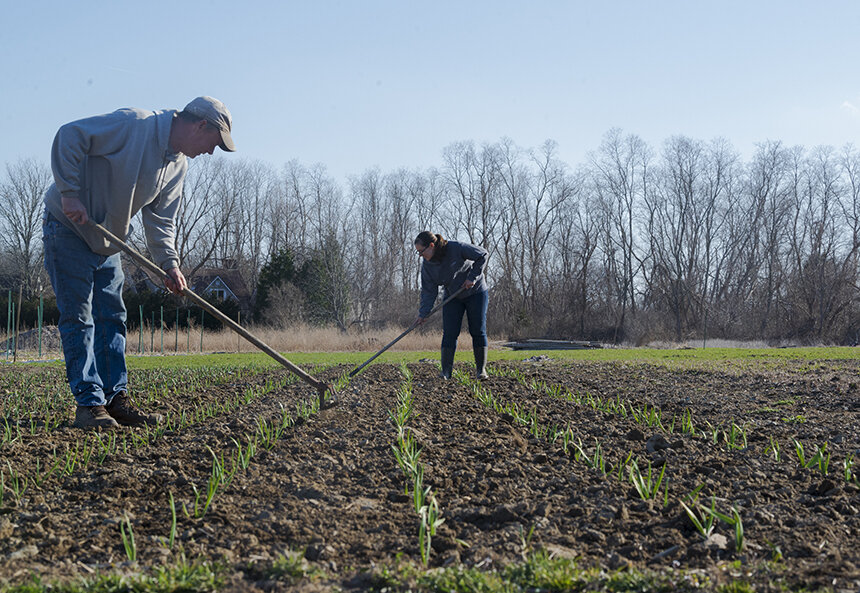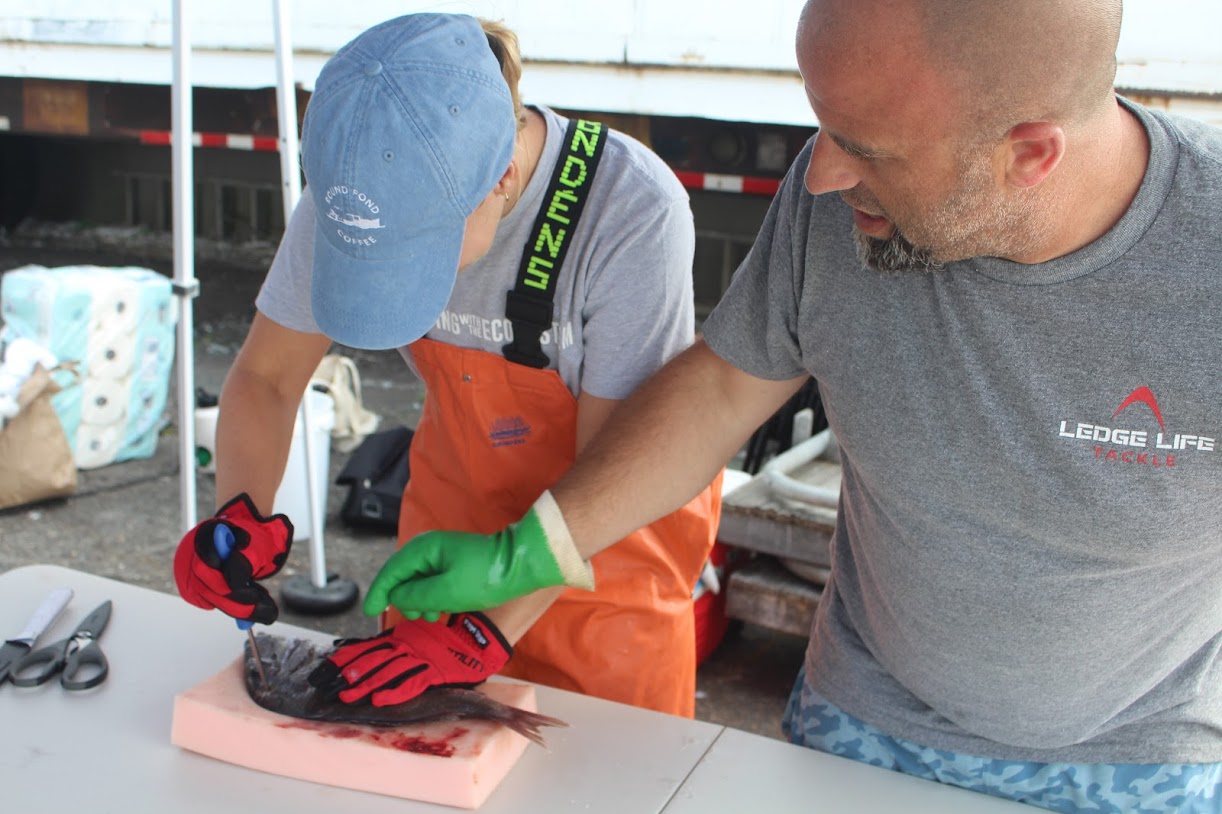Serving Up Compost Tea to Fund Organic Mission
April 2, 2014
NORTH SMITHFIELD, R.I. — The first documented use of compost tea goes back to the early Roman Empire. Frank Jacques says his recipe is a few thousand years old. He’s banking on his ancient organic brew to fund a nonprofit devoted to helping Rhode Island take back its food system.
In the late 1800s, about 10,000 people were working in the Slater mills, in the area of town now known as the village of Slatersville. A nearby farm — now called Buxton Hollow Farm, which Jacques and his wife, Nancy, bought in 2002 — provided those workers with fruits and vegetables.
Some 125 years later, Jacques hopes his 30-acre farm can provide a similar service again. “People need to understand how to take back control of their food security,” he said. “We’re a chemical-based society now. Our agricultural practices aren’t sustainable, or healthy for us or the environment. People don’t understand they are living experiments for Big Ag.”
Just last year, the United Nations published a 341-page report entitled “Wake Up Before It’s Too Late: Make Agriculture Truly Sustainable Now for Food Security in a Changing Climate” that calls for a better understanding of the multi-functionality of agriculture.
The report’s authors write that the world needs a “rapid and significant shift from conventional, monoculture-based and high-external-input-dependent industrial production towards mosaics of sustainable, regenerative production systems that also considerably improve the productivity of small-scale farmers. We need to see a move from a linear to a holistic approach in agricultural management, which recognizes that a farmer is not only a producer of agricultural goods, but also a manger of an agro-ecological system that provides quite a number of public goods and services.”
Jacques and his business partner, Richard Stang, are determined to change the paradigm, at least locally. The plan for the farm’s Center for Sustainable Organic Agriculture includes five greenhouses, classrooms, offices, and hydroponic and aquaponic gardens. Space for the nonprofit center has already been cleared, and a grant from the U.S. Department of Agriculture to study a geothermal energy system secured. Jacques said he has already spent more than $100,000 on the project, but more money will be needed to make the center a reality. That’s where expanding the market for the farm’s compost tea comes into play.
Jacques, who earned a master’s in composting from the University of Maine at Augusta, began selling the tea about four years ago, after family and friends began asking for quarts and gallons of the concoction he was feeding the farm’s soil. The tea is now sold at the farm, in a few area stores and online.
Compost tea is a liquid produced by extracting bacteria, fungi, protozoa and nematodes from compost. Buxton Hollow Farm’s blend is certified organic.
“We need to remember that we are feeding the soil, not the plant,” Jacques said. “Composting is nature’s recycling program. Soil is a living, breathing organism that needs oxygen and water. We’ve been too busy soaking it with chemicals.”
When water is added to wake up trillions of dormant microorganisms, one bag of the dry ingredients, which includes unrefined dark brown sugar and sphagnum peat moss, among a few other ingredients, makes 5 gallons of tea, enough nutrient for 2,500 square feet. Jacques and Stang are now working with three laboratories to expand the product to other uses, most notably as a lawn application.
To help better market the farm’s signature product, Stang is creating a website (billyfarm.com) to chronicle the effectiveness of the compost tea on different gardening plots and topsoils at his Westport, Mass., home.
“We need to get back to a local food system to reduce the use of chemicals and to lower our carbon footprint,” Stang said. “We want to show people how to grow their own fruits and vegetables. We want to arm them with knowledge.”
Categories
Join the Discussion
View CommentsRecent Comments
Leave a Reply
Your support keeps our reporters on the environmental beat.
Reader support is at the core of our nonprofit news model. Together, we can keep the environment in the headlines.
We use cookies to improve your experience and deliver personalized content. View Cookie Settings




Frank is a real model for what we need in Rhode Island. Thanks Frank and Buxton Hollow Farm.
I love Mr. Stang's last comment about arming people with knowledge – definitely one of the critical elements in our path to a healthy and sustainable Rhode Island.